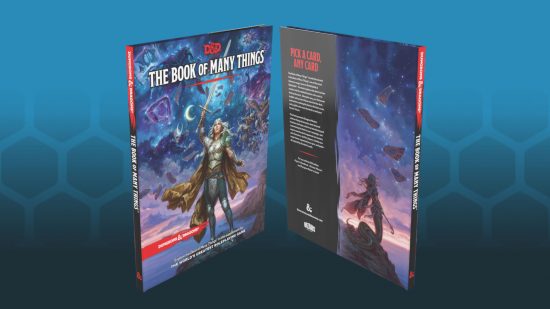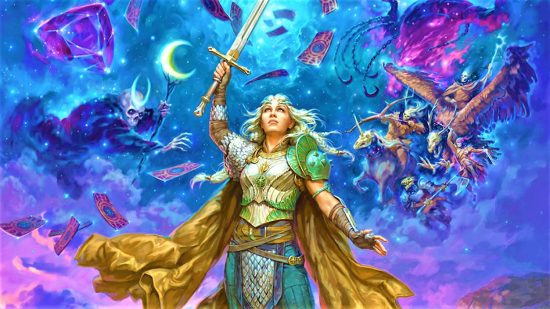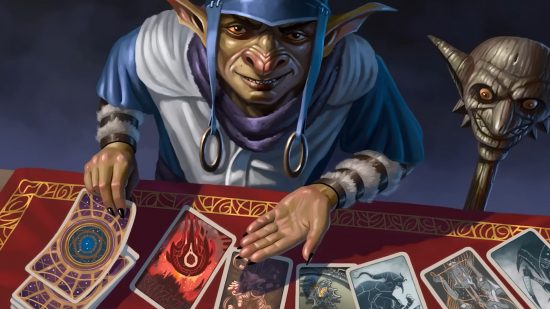D&D publisher Wizards of the Coast has confirmed its first canon autistic DnD character, and she takes on a starring role as the narrator of the upcoming DnD book, The Book of Many Things. On paper, fresh representation sounds great – but this new character isn’t likely to change how I (an autistic person) play my D&D games. The truth is, all of my characters were autistic anyway.
None of the characters in my DnD campaigns have a medical document diagnosing them. The word ‘autism’ isn’t even said – we are, after all, usually playing in a fantasy world heavily inspired by Medieval Europe, a setting that lacks the language to describe autism. But autistic they are nonetheless.
I’ve played a Half-Orc Fighter 5e character with ultra-high Intelligence and a total disregard for social norms (she’s ignoring her family’s wishes and becoming an accountant instead of a mercenary). My Tortle DnD Druid has a rigid sense of justice, several essential comfort objects, and an abysmal Charisma modifier. Every new DnD character sheet is filled with autistic experiences, whether I intended to share them or not.

Perhaps it’s because I don’t know any different – in its most boiled-down definition, autism is a different wiring of the brain. Pretending to be neurotypical is something I find hard to do (despite often being expected to do so outside of games as well as in). There’s no sourcebook to teach me how. Incidentally, there are no official resources that help you recreate the autistic experience, either.
Don’t get me wrong; I think it’s both good and right to represent autistic people in Dungeons and Dragons. Asteria, our newfound narrator for The Deck of Many Things, is the brainchild of an autistic creator who seems to have provided a well-rounded and thoughtful portrayal of the disability.
But I think, in true D&D fashion, this needs to be a ‘yes, and’ scenario. It’s great to see Wizards of the Coast acknowledging its increasingly diverse player base. It’d be even greater to see content with impact.
Journeys Through the Radiant Citadel has a whole chapter full of guidance on respectfully portraying cultures other than your own. Candlekeep Mysteries deliberately and thoughtfully explores how an adventure can be navigated by a character in a wheelchair. D&D 5e has proven it can be used to teach us to experience the world through others’ eyes.
If we want to raise awareness in neurotypical players and have them portray autism effectively, Wizards needs to give autism that same level of content and care. I’ve been playing as an autistic person all my life – and one autistic background character isn’t going to encourage me (or neurotypical people) to change.
You can learn more about Asteria in this Polygon interview with Makenzie de Armas. For more help making characters of your own, check out our guide to DnD classes and DnD races.

